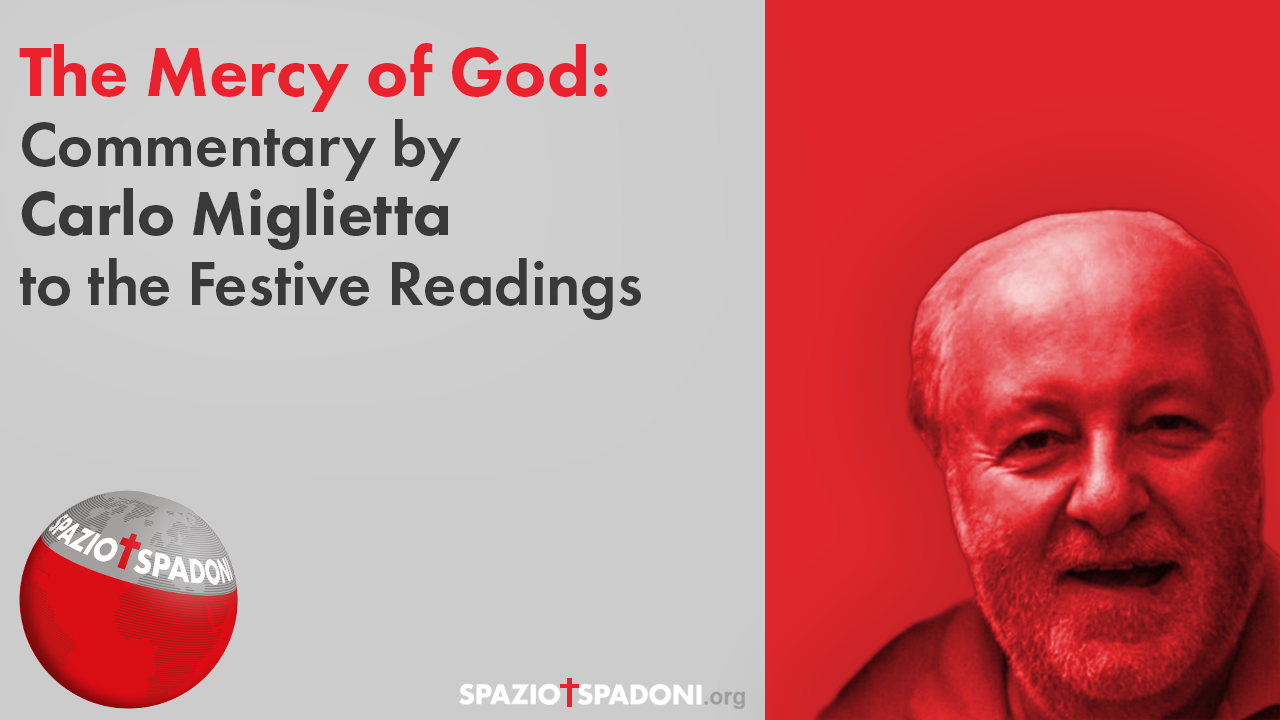
Sunday XXIV Year B – Making oneself a servant like the Servant
Readings: Is 50:5-9; Jas 2:14-18; Mk 8:27-35
The First Reading (Is 50:5-9) introduces us to the “man of sorrows who knows well the affliction” (Is 53:3), who “took upon himself our sufferings, took upon himself our sorrows” (Is 53:4), and by whose “wounds we have been healed” (Is 53:5). Mysterious personage, who already prompted the Ethiopian eunuch, an official of Candace, queen of Ethiopia, to ask the deacon Philip, sent to him by the Holy Spirit, “Please, of which person does the prophet say this? Of himself or someone else?” (Acts 8:34). Already in Israel many had tried to identify this personage with a specific historical figure. But finally the Jewish tradition read in the Servant of IHWH the prophecy of the destiny of Israel itself, which, with its tragic history of exile, dispersion, and persecution, becomes the source of salvation for all the nations (Lk 1:54).
The Church’s interpretation of this was Christological: “Philip, starting from that passage of Scripture, proclaimed to him the good news of Jesus” (Acts 8:35). Matthew explicitly states that in Jesus “was fulfilled what had been spoken by the prophet Isaiah” concerning the Servant (Mt 8:17 -> Is 53:4; Mt 12:17-21 -> Is 42:1-4). In John, the Baptist points to Jesus as “the lamb of God, the one who takes away the sin of the world” (Jn 1:29), recalling precisely Is 53:7 and playing on the Aramaic term “talija,” which can mean both “servant” and “lamb.” This explanation does not repudiate the previous ones, but brings them to fruition. Both the various righteous who suffered in the Old Testament and the entire people of Israel are figures and prophecies of the Messiah, the Righteous One par excellence, by whose sufferings we have all been saved.
In today’s Gospel (Mark 8:27-35) we are at the heart of Mark’s proclamation: at the beginning (1:1), at the end (15:39) of the Gospel, and here, at the center, the divinity of Jesus Christ is proclaimed. In the city that bears the name of Caesar, who calls himself God and Lord, Peter affirms that Jesus is the “Kristòs” (Greek translation of the Hebrew “Mashìa”), the eschatological Anointed One, in whom God brings Israel’s messianic expectation to fulfillment.
But Jesus identifies himself as the Suffering Servant prophesied by Isaiah: to be Messiah for him means to suffer “many things” (“pollà”), to be repudiated, and then to rise again. This revelation is scandalous to Peter, who stands beside Jesus to give him advice (Isa 40:13-14): Jesus puts Peter back into his role as disciple, who must walk behind the Master: “Ypaghe opìso mou!”, “Go after me!” (Mk 8:33); and he calls him Satan, adversary, as long as he opposes the logic of salvation.
So Jesus warns all those who want to set out to follow him: it is necessary that they “disown” (“aparvèomai”: Mk 8:34) themselves, that is, that they know nothing but God’s will which is the call to service, that they too accept the cross, that they make of their lives a total gift.
The Second Reading (Jas. 2:14-18) reminds the Christian that if his faith does not become “work,” “it is dead in itself.” But it is not enough to generically “help” one’s neighbor. Following the example of the Servant of IHWH who became incarnate in our sufferings by taking them upon himself, so the disciple is to participate in the straits, poverty, sorrows, and torments of men, sharing totally in the lives of his brothers and sisters. Christians are required to have “compassion,” that is, to know how to “suffer with” those who suffer: “”If one member (of Christ’s mystical body) suffers, all the members suffer together” (1 Cor. 12:26); therefore, ‘rejoice with those who are in joy, weep with those who are in tears’ (Rom. 12:15), ”making yourselves in solidarity with those exposed to insults and tribulations” (Heb 10:33).
We are called to participate in the Servant’s life by being, like him, servants and sharers in the sufferings of our brothers and sisters.
